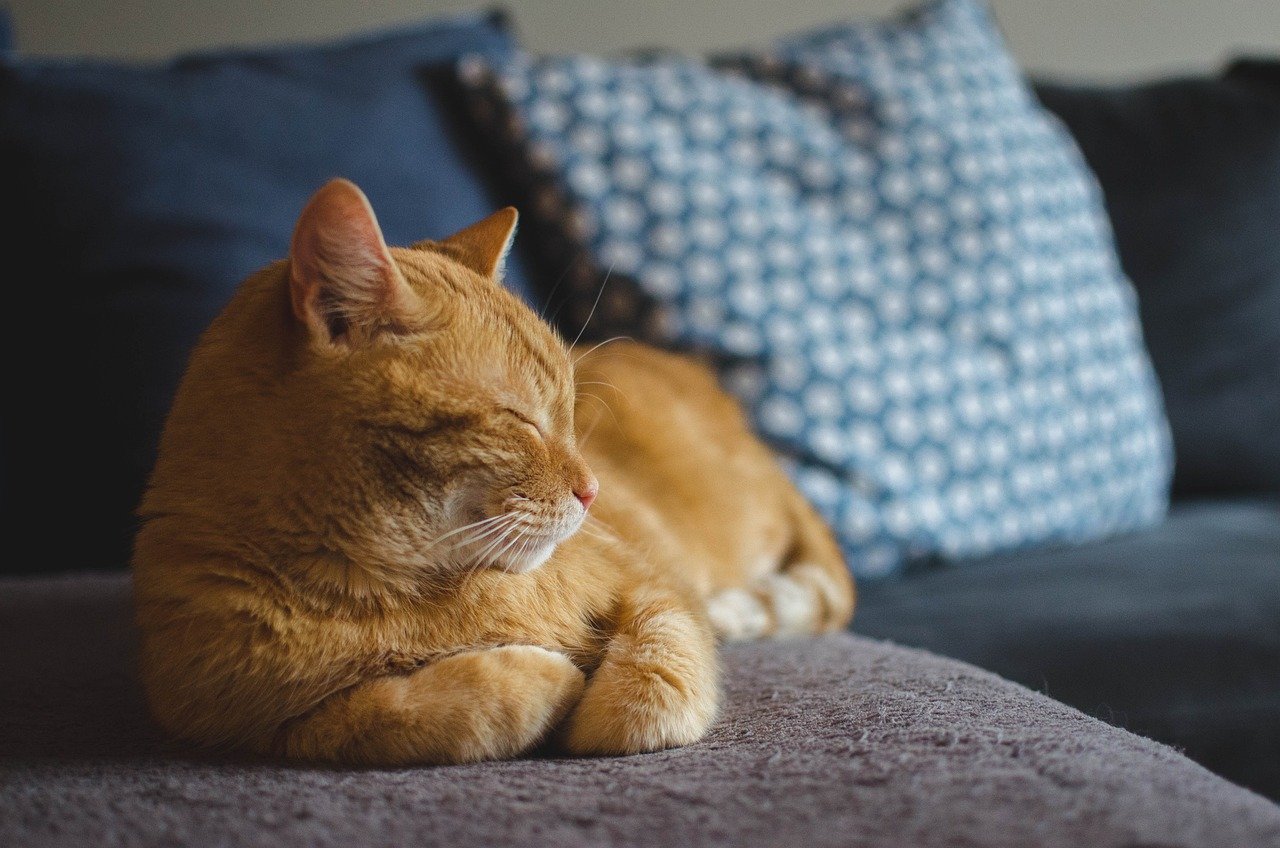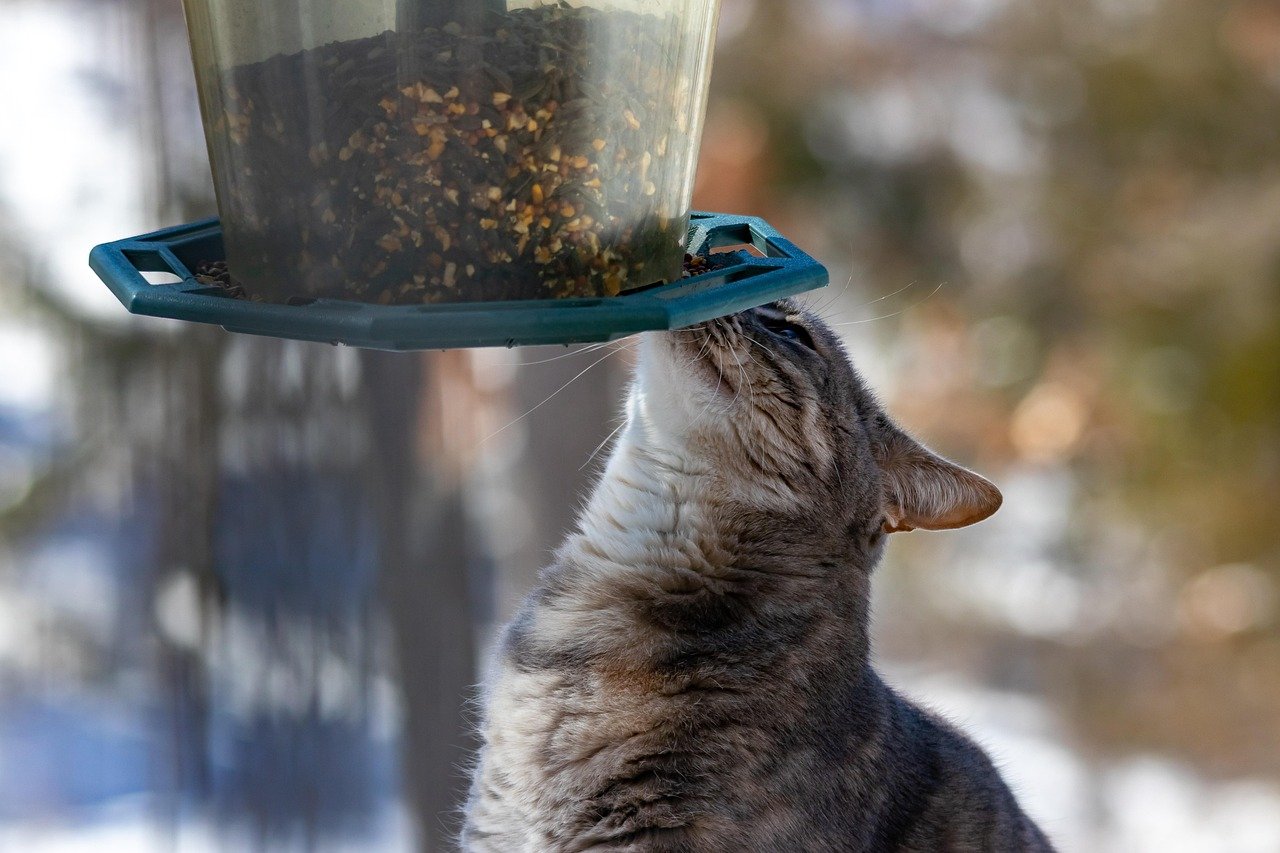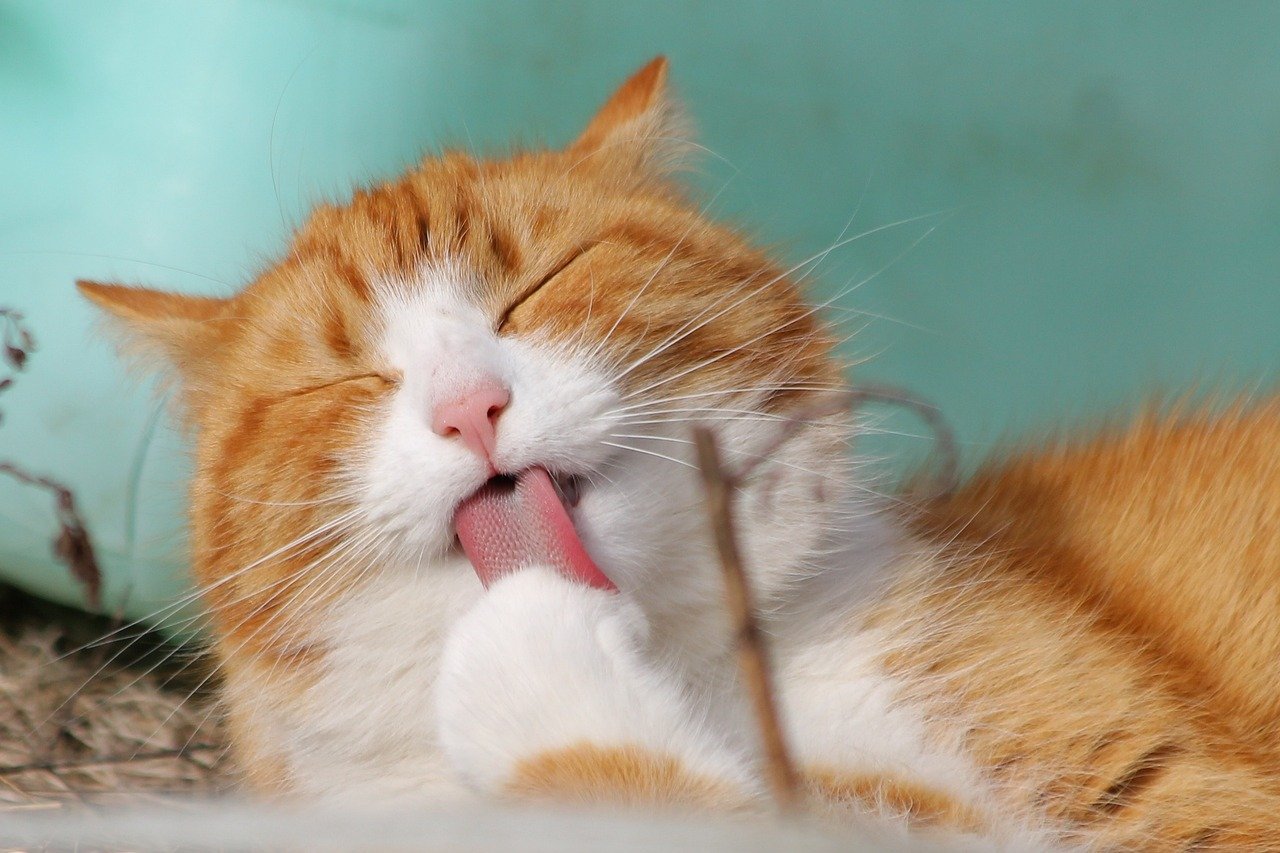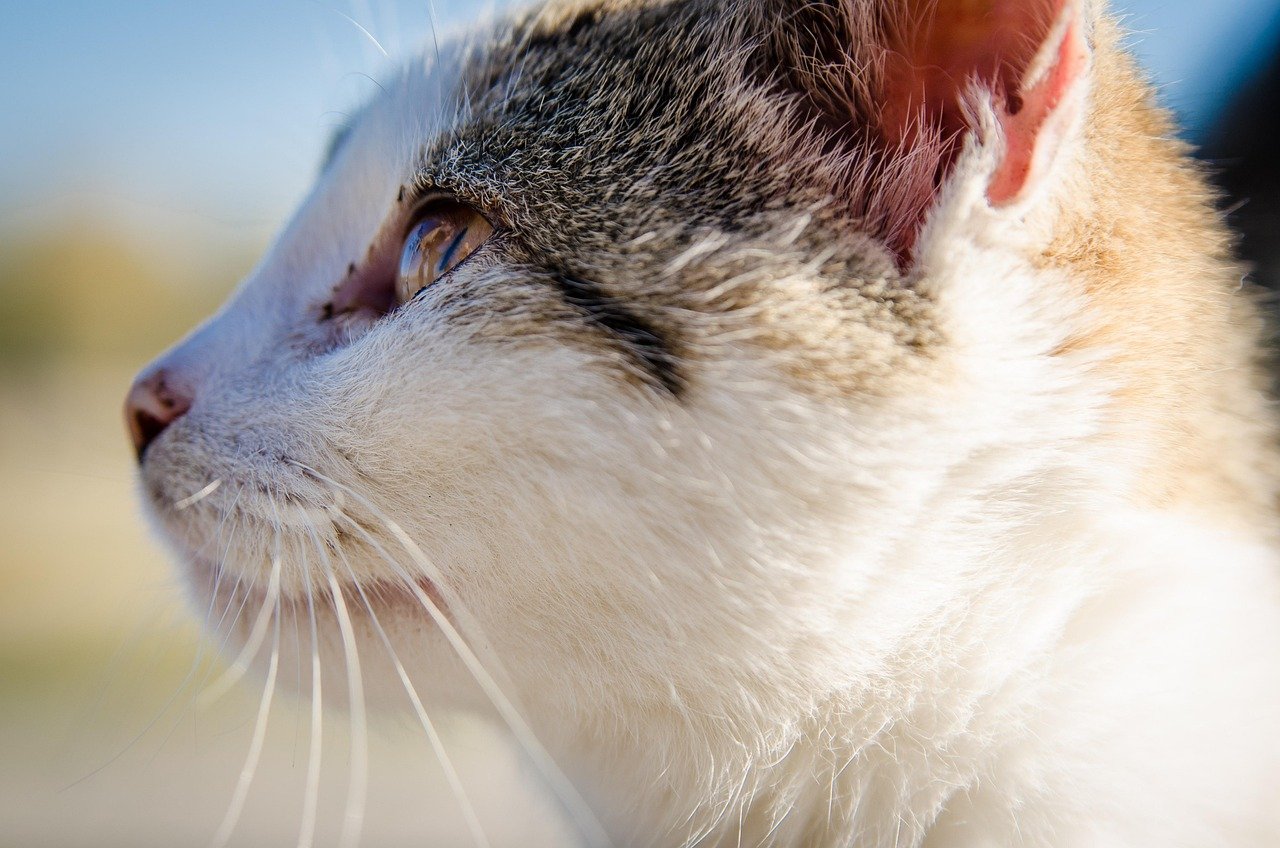Have you ever watched your cat dart under the bed at the slightest sound, or pace restlessly as if the walls themselves were closing in? If you’re a cat parent, you know the signs of feline stress all too well. It tugs at your heartstrings and sometimes leaves you feeling helpless. But the good news is, helping your anxious kitty doesn’t have to involve force or frustration. With a little patience, understanding, and some clever tricks, you can gently guide your cat back to a calm, happy state. Let’s dive into these surprisingly effective and gentle ways to reset your stressed-out cat—methods that work with your cat’s nature, not against it.
Create a Safe Hiding Spot

Every cat craves a space where they feel secure—think of it as their own private cave. Giving your cat a dedicated hiding spot, like a cozy box tucked away in a quiet corner or a soft, covered cat bed, can make all the difference. This isn’t about encouraging them to hide forever, but about giving them an escape from the chaos of a busy household or the scary vacuum monster. When cats have a safe haven, they’re more likely to come out and explore on their own terms. You might notice your cat’s breathing slow and their eyes soften once they know they’re not cornered. Adding a familiar blanket or an item with your scent can make this spot even more comforting. If your home is especially noisy, placing the hideaway in a low-traffic area works wonders. It’s like providing them with their own secret treehouse where the world can’t reach them.
Offer a Consistent Routine

Imagine if every day felt like a surprise party—some people might love it, but for cats, unpredictability can lead to stress. Sticking to a regular schedule for feeding, playtime, and even cuddle sessions helps cats feel secure. When your cat knows what to expect, it’s like giving them a road map through the day. Try to feed your cat at the same times each morning and night. Even playtime, just ten minutes after dinner, can become an anchor in their daily life. This predictability eases anxiety because your cat can anticipate when the next exciting thing (or tasty meal) is coming. If you need to make changes—like switching their food or rearranging furniture—do it slowly and gently. Your calm consistency becomes the gentle background music that makes your cat’s world less scary.
Use Calming Scents

Scents can work magic on a cat’s mood, often in ways we humans barely notice. Products that mimic feline pheromones, like diffusers or sprays, send out invisible “all is well” signals that only cats understand. You can spray these near your cat’s favorite spots or plug in a diffuser in the room they frequent most. Some cat parents swear by a few drops of lavender or chamomile essential oil (well diluted and out of reach—never let cats ingest or touch essential oils directly) on a cloth near the cat’s space. Even the simple act of keeping your cat’s space fresh and clean, free from unfamiliar or harsh odors, can be soothing. If you’re ever unsure, watch your cat’s reaction to new scents—some may perk up, others may relax, and a few may simply ignore it. The goal is to create an environment that smells like a gentle hug.
Encourage Gentle Play

Play isn’t just fun for cats—it’s therapy. When a cat is stressed, their energy can build up and make them feel trapped in their own skin. Interactive toys, like feather wands or laser pointers, give your cat an outlet to chase, pounce, and let off steam in a safe, positive way. The key is to keep it gentle and avoid overstimulating your cat, especially if they’re already anxious. Start with slow, predictable movements and let your cat set the pace. If your cat prefers solo play, leave out puzzle toys or treat balls for them to discover. Building playtime into your daily routine can distract your cat from their worries and remind them that life is full of fun surprises. Sometimes, all it takes is a bouncing ball to turn a bad day around.
Minimize Loud Noises

Loud sounds can make even the bravest cat jump out of their fur. From thunderstorms to blaring TVs, sudden or constant noise is a major source of feline stress. Whenever possible, keep household noise to a minimum. If you know a storm is coming, close the windows and draw the curtains to muffle the sound. Play soft music or white noise to create a calm background hum that drowns out jarring noises. In multi-pet homes, separating your cat from rowdy dogs or noisy children for a while can help them decompress. Even small changes, like placing their bed away from the washing machine, can make a big difference. Remember, your cat’s ears are much more sensitive than yours—what sounds faint to you might feel like a rock concert to them.
Offer High Perches

Cats love to observe the world from above. A high perch, like a sturdy cat tree or a cleared-off shelf, can be a game-changer for a stressed-out feline. Up high, cats feel in control and less vulnerable—after all, nothing can sneak up on them from above. If your cat is feeling anxious, guide them to their perch with treats or gentle encouragement. Watching the world from a safe vantage point often helps cats reset their nerves. You might notice your cat relaxing, stretching, or even dozing off once they’re perched up high. These elevated spots are especially important in homes with other pets or small children, giving your cat a peaceful retreat. Sometimes, all a cat needs is a little elevation to feel on top of the world again.
Provide Interactive Feeders

Turning mealtime into a fun challenge can distract your cat from their worries. Interactive feeders or puzzle bowls make your cat “hunt” for their food, tapping into their natural instincts and keeping their mind busy. Instead of scarfing down dinner in seconds, your cat has to work a bit, which can make eating more satisfying and less stressful. These feeders also slow down eating, which is healthier for digestion and helps prevent overeating. You can find all kinds of puzzle feeders, from simple balls that dispense kibble to more complex mazes. If you’re feeling creative, make one at home with an egg carton or muffin tin filled with treats. Watching your cat solve the puzzle is like seeing them rediscover their inner tiger.
Use Gentle Touch and Massage

Sometimes, the most powerful reset for a stressed cat is the gentle magic of touch. Soft pets along the cheeks or a slow, rhythmic stroke down the back can help melt away tension. Some cats even enjoy a light massage around their shoulders or base of the tail. Always let your cat lead—watch their body language and stop if they seem uncomfortable. For especially anxious cats, start with just a finger or two and keep sessions short. Over time, these gentle touches build trust and can become a soothing ritual. It’s a lot like a mini spa day for your feline friend. Just remember, every cat is unique—some prefer their space, while others crave closeness. Listening to your cat’s cues is the secret ingredient.
Play Calming Music

Believe it or not, music can work wonders on a cat’s frazzled nerves. Soft, slow tunes, especially those designed for cats, have been shown to lower feline anxiety. You can find playlists online featuring gentle harp, piano, or even special “cat music” that mimics purring or bird calls. Play this music during stressful times, like thunderstorms or when guests visit. Over time, your cat may begin to associate these calming sounds with peaceful moments. Some cat owners even notice their pets curling up and purring in time with the music. Think of it as a lullaby for the soul—yours and your cat’s. If you’re musically inclined, try humming softly or singing to your cat; your familiar voice might be the most soothing sound of all.
Offer Scented Blankets or Toys

Familiar scents are comforting to cats, especially when stress levels rise. Place a blanket or toy that smells like home—maybe something you’ve worn or a favorite old towel—near your cat’s bed or in their hiding spot. The scent acts like an invisible hug, reminding your cat they’re safe and loved. You can also rotate toys so that each one picks up the scent of your home before being given to your cat. Some cats respond well to catnip or silvervine, which can have a calming, happy effect. Just be sure to observe your cat’s reaction; while most love catnip, a few may get too excited. For kittens or cats adjusting to a new home, a scented item can make the unfamiliar feel a little less scary.
Allow Time and Space

Sometimes, the best thing you can do for a stressed cat is simply to give them time. Cats process stress at their own pace, and forcing them to interact or “get over it” usually backfires. Respect your cat’s boundaries by letting them retreat when they need to. Avoid picking them up or coaxing them out of hiding—let your cat come to you when they’re ready. This patience builds trust and shows your cat that their feelings matter. You might be surprised at how quickly your cat bounces back when given the space to decompress. Like humans, cats need their alone time to reset and recharge. Trust the process—healing happens in its own time.
Introduce New Experiences Gradually

Big changes can be overwhelming for cats, whether it’s a new piece of furniture or a new family member. The trick is to introduce new things slowly and gently. Let your cat explore at their own pace—maybe sniffing a new object from a distance or watching a visitor from their hiding spot. If you’re bringing home another pet, start with brief, supervised meetings and gradually increase their time together. Use treats and positive reinforcement to associate new experiences with good feelings. This careful approach helps your cat feel in control and reduces the risk of stress-related behavior problems. Think of it like dipping a toe into cold water instead of diving in headfirst.
Maintain Clean Litter Boxes

A dirty litter box is like a nightmare for any self-respecting cat. Keeping the litter box clean and fresh is crucial for reducing stress. Scoop daily and change the litter often; even a little bit of mess can make your cat avoid the box or act out. Place the box in a quiet, low-traffic area where your cat feels safe. Some cats prefer covered boxes for privacy, while others like them open—pay attention to your cat’s preference. If you have multiple cats, provide one box per cat, plus one extra if possible. Remember, a clean litter box isn’t just about hygiene—it’s a signal to your cat that their needs matter.
Use Positive Reinforcement

Cats respond to kindness far better than to punishment. When your cat does something brave, like coming out of hiding or exploring a new room, reward them with treats, praise, or gentle affection. Positive reinforcement helps build your cat’s confidence and encourages more of the behaviors you want to see. Avoid yelling or scolding, which only increases anxiety. Instead, focus on celebrating your cat’s small victories. Over time, your cat will associate positive experiences with new situations, making it easier for them to cope with stress in the future. Remember, every “good job!” or tasty treat is a step toward a happier, more relaxed kitty.
Try Cat-Friendly Herbs

Certain herbs can have a calming effect on cats, much like a cup of tea for humans. Catnip, valerian root, and silvervine are well-known favorites. Offer these herbs in toys or sprinkle a little on a scratching post to encourage relaxation. Not all cats respond to these herbs, so experiment to see what your cat likes. You can even grow a small pot of cat grass for your feline to nibble on. Just be sure any plants you offer are safe for cats—many common houseplants are toxic. Watching your cat roll in a patch of catnip is like seeing pure feline joy in action.
Provide Visual Stimulation

A bored cat is often a stressed cat. Keep your cat’s mind active with visual stimulation, like a window perch where they can watch birds or squirrels. Aquarium screensavers, videos for cats, or even a simple mobile or mirror can provide endless fascination. Just be sure the window is secure, so your cat can’t slip out. If you live in an apartment, stick a bird feeder outside the window for a front-row seat to the action. Visual stimulation helps distract from stress and sparks your cat’s natural curiosity. Sometimes, just watching the world go by is the best therapy.
Offer Variety in Toys and Activities

Cats love novelty and get bored with the same old toys. Rotate your cat’s toys every few days to keep things interesting. Try different textures, shapes, and sounds—some cats love crinkly tunnels, while others are obsessed with soft mice or jingling balls. Introducing new activities, like food puzzles or interactive play, can reignite your cat’s natural hunting instincts. This variety keeps both their body and mind engaged, reducing stress and preventing destructive behavior. You don’t need to spend a fortune; even a crumpled paper ball or cardboard box can become a treasure. Keep experimenting until you find your cat’s favorites.
Schedule Regular Vet Check-Ups

Sometimes, what looks like stress is actually a hidden health problem. Schedule regular vet visits to rule out any medical issues that could be making your cat anxious. Cats are experts at hiding pain, so even subtle changes in behavior deserve attention. Your vet can offer advice on managing stress and may recommend supplements or treatments if needed. Don’t wait until small problems become big ones. A clean bill of health is the first step toward a happier, calmer cat. Plus, your vet can be a valuable partner in your journey to feline serenity.
Limit Changes in Environment

Cats thrive on familiarity, so sudden changes in their environment can send them into a tailspin. Try to keep your cat’s surroundings as stable as possible. If you must make changes, like moving furniture or redecorating, do it gradually and allow your cat to adjust at their own pace. Keep their favorite items—beds, toys, and scratchers—in the same place whenever possible. If you’re moving to a new home, set up a “safe room” with all your cat’s essentials before introducing them to the rest of the house. Stability and predictability help your cat feel grounded, even when life gets hectic.
Spend Quiet Time Together

Sometimes, all your cat needs is your presence. Sit quietly near your cat, read a book, or talk softly. You don’t have to pet or interact—just sharing space can be incredibly soothing for a stressed cat. This gentle companionship lets your cat know they’re not alone without overwhelming them. Over time, your cat may approach you for cuddles or even curl up beside you. These quiet moments build trust and deepen your bond. It’s a small gesture with a big impact, reminding your cat that you’re their safe place, too.
Practice Patience and Understanding

Resetting a stressed-out cat isn’t about quick fixes—it’s about patience, empathy, and a willingness to see the world from your cat’s perspective. Every cat is unique, with their own triggers and timelines for recovery. Celebrate the small victories, and don’t get discouraged by setbacks. Approach each situation with compassion and an open heart. Your calm, reassuring presence is often the most powerful tool you have. With time, love, and a little creativity, your cat will find their way back to peace.
Hi, I’m Bola, a passionate writer and creative strategist with a knack for crafting compelling content that educates, inspires, and connects. Over the years, I’ve honed my skills across various writing fields, including content creation, copywriting, online course development, and video scriptwriting.
When I’m not at my desk, you’ll find me exploring new ideas, reading books, or brainstorming creative ways to solve challenges. I believe that words have the power to transform, and I’m here to help you leverage that power for success.
Thanks for stopping by, Keep coming to this website to checkout new articles form me. You’d always love it!






